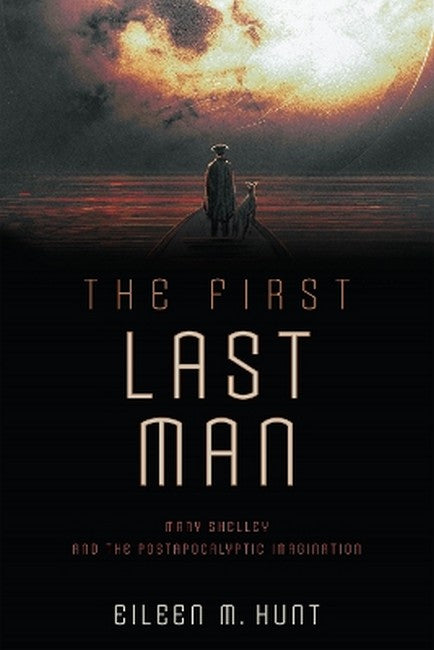Eileen M. Hunt is Professor of Political Science at the University of Notre Dame. She is the author of Artificial Life After Frankenstein and Mary Shelley and the Rights of the Child: Political Philosophy in "Frankenstein," both available from the University of Pennsylvania Press.
Request Academic Copy
Please copy the ISBN for submitting review copy form
Description
Preface. Mary Shelley Created "Frankenstein," and Then a Pandemic Introduction. Contagions of Misfortune: Plague as a Metaphor for Disaster Chapter 1. Journals of Sorrow: Mary Shelley's Existential Philosophy of Love Chapter 2. The Plague of War: Salvaging the Significance of Mary Shelley's Translation of Oedipus Rex Chapter 3. Mary Shelley's The Last Man: Existentialism and International Relations Meet the Postapocalyptic Pandemic Novel Postface. The Last Woman in Self-Quarantine Notes Index Acknowledgments. Or, Coming Full Circle
"This erudite study examines plague motifs in the writings of 19th-century English novelist Mary Shelley...The sharp analysis sheds welcome light on lesser studied corners of Shelley's oeuvre, and Hunt's meditation on the final scene of The Last Man provides a stirring take on enduring in the face of calamity: 'We should always act upon hope for retaining what makes us loving, humane, and connected to others, even in the face of total catastrophe.' English literature scholars will consider this well worth their time." (Publishers Weekly) "Hunt is unusual, almost unique, in practicing serious literary criticism outside of a literature department...The First Last Man is a book about Mary Shelley, COVID-19, and global politics all at once. Though Shelley's apocalyptic and dystopian novel The Last Man (1826), set in the aftermath of a deadly pandemic, is at the center, the real subject is Shelley's 'plague writing' in general, both public and private, fiction and nonfiction. Hunt views The Last Man as a departure from an earlier tradition of plague literature going back to Sophocles' Oedipus Rex (which Shelley translated) by depicting a global pandemic, which allowed her to reflect on how cultures respond to traumas partly of their own creation-an echo of Frankenstein. As the daughter of two political philosophers, Shelley was well positioned to muse on these questions. This thoroughly researched and compellingly written book deserves a wide readership." (Choice) "The final installment of Eileen M. Hunt's magnificent trilogy of books about Mary Shelley, and the most profound. Studying The Last Man together with Shelley's tragic journals and her hitherto unknown translation of Sophocles's Oedipus Rex, Hunt uncovers a searing account of catastrophe, suited to our times, but also a constructive project of facing the worst with love, hope, and connection to others. Shelley now takes her rightful place as a major, indeed heroic, voice in the history of political thought." (Martha C. Nussbaum, The University of Chicago) "The First Last Man is compelling reading. Timely, thought provoking, and humane, it reframes Shelley's The Last Man for our moment and epitomizes a new kind of intellectual, literary, and political awareness about Shelley's work." (Maria Schoina, Aristotle University of Thessaloniki, Greece) "Eileen M. Hunt wears her deep learning lightly to pace a scholarly narrative that itself often reads like a novel, informed by her own autobiography, finding companionship in Shelley's persistence through serial devastations to persevere with hope and purpose. The First Last Man is an unrivaled accomplishment of admirable scholarship and impassioned humanism." (Susan J. Wolfson, Princeton University) "This book, which combines deep erudition with personal storytelling and introspection, is sui generis." (Sylvana Tomaselli, author of Wollstonecraft: Philosophy, Passion, and Politics) "Highly original, meticulously researched, and compelling, this extraordinary book is not only a sweeping and comprehensive study of Mary Shelley's place in the tradition of plague literature, but also a deeply moving account of Eileen M. Hunt's personal story and her own experience reading and researching Shelley during the Covid pandemic." (Charlotte Gordon, author of Romantic Outlaws: The Extraordinary Lives of Mary Wollstonecraft and Mary Shelley)

